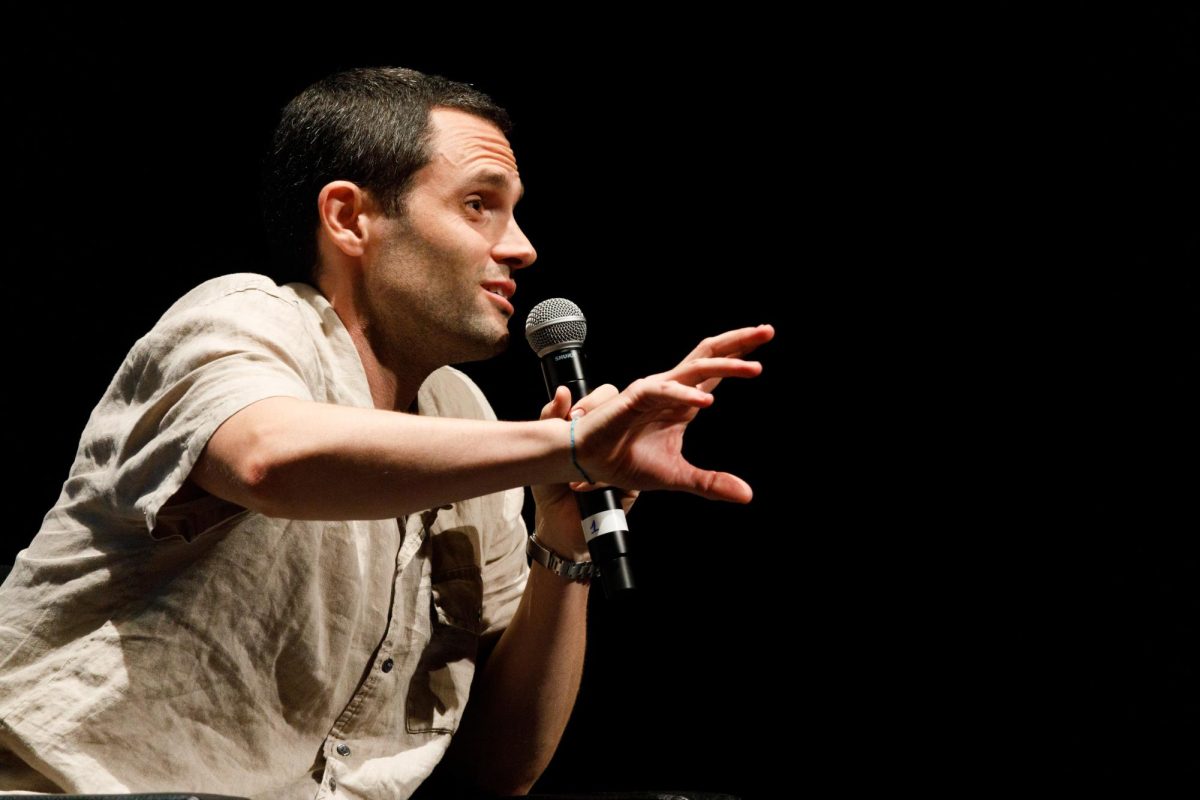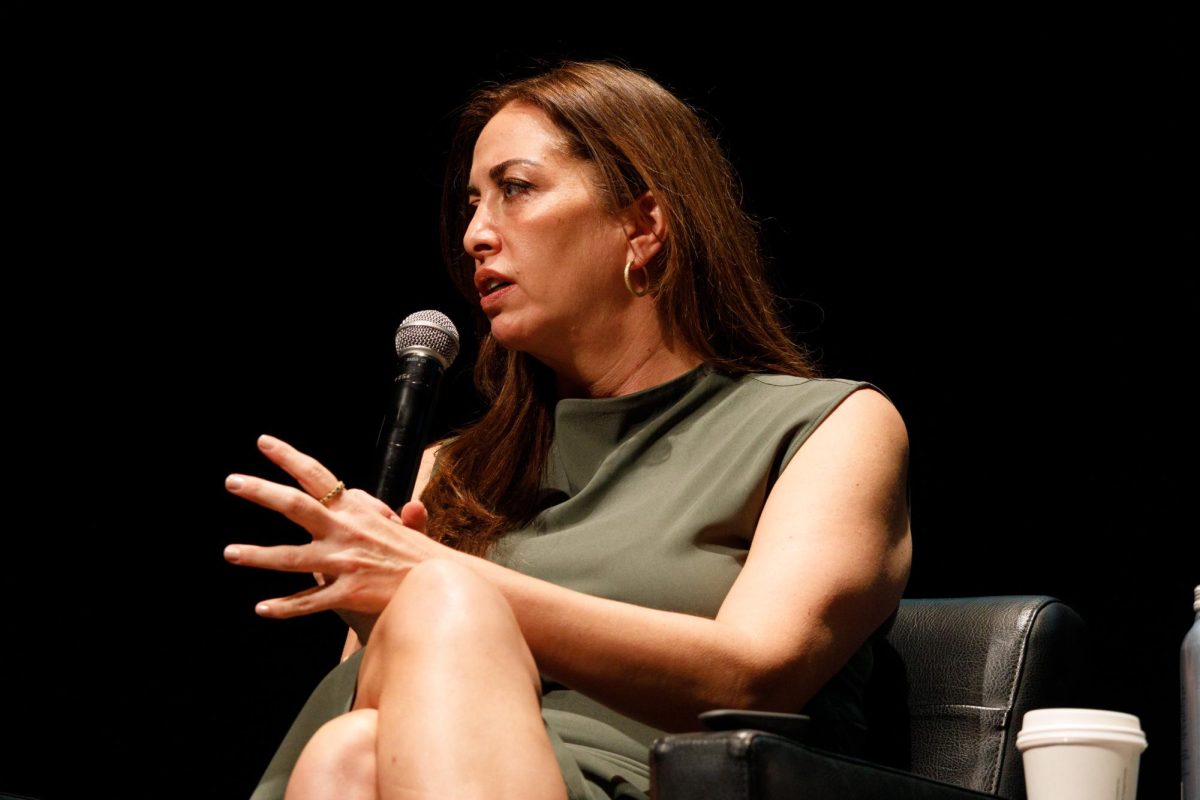Actor Penn Badgley and psychotherapist Dr. Nura Mowzoon brought their discourse series to the Cutler Majestic Theatre Oct. 16 as part of a collaborative event between EmersonTogether and New Student Orientation.
The series, titled “Can We Talk,” is an interactive discussion centered around how to have meaningful conversations during difficult times, drawing on psychology and social science.
Badgley works in television and film, and has been a professional in media for over 25 years. Many audience members know Badgley from his roles on television, including “You” and “Gossip Girl,” but he is also the co-founder of a production company called Ninth Mode, where his hit podcast “Podcrushed” premiered.
Mowzoon holds a bachelor’s in Family Studies & Child Development and a doctorate in Marriage & Family Therapy. She is also an instructor at Arizona State University, where she teaches classes on love and relationships.

“A lot of classes that I teach focus on relationships, and I was noticing a pattern with my students who were really building their expectations of relationships based on what they had seen in the media,” Mowzoon said, in a video posted on the “Can We Talk” website. Mowzoon and Badgley connected through a mutual friend and became co-creators of the series.
Mowzoon and Badgley began the talk by laying out their vision for having an interactive discussion. “To speak without fear, and to listen without defensiveness,” Mowzoon and Badgley said of their goals with the event.
The majority of the discussion that followed was based on several questions Mowzoon and Badgley asked the audience.
One question from their slideshow was, “Why do we divide?” A common theme brought up throughout the discussion was labeling and the concept of “the other.”
“Social change happens when we learn how to have meaningful conversations with ‘the other,’” Mowzoon and Badgley said. Mowzoon continued to compare the label with examples such as villains and heroes in an argument.
“You can’t have a villain without having a hero,” Mowzoon said, as part of the larger discussion around communication and “humanizing the enemy.”
Mowzoon and Badgley then asked the audience to consider, “What do you risk losing when you humanize the enemy?”

Mowzoon expanded on one audience member’s answer about losing the “adrenaline” in an argument.
“As we are putting someone in their place, the reward centers of our brain go crazy,” Mowzoon said. “We are getting all sorts of dopamine hits when we think we are like the avenger and the harbinger of justice, and so it actually can become chemically addictive.”
Adding to part of the discussion on dopamine, Badgley said, “You know, it’s not just happiness, it’s not just a reward, it’s actually safety,” connecting the calming and soothing of the nervous system to the feeling of safety.
The audience had the chance to ask questions in some of their responses to Mowzoon and Badgley too. Many audience members asked, when is it time to stop having conversations with “the enemy?”
In response, Mowzoon talked to the crowd about the differences between a defensive mindset and receptive one.
“Being in a defensive mindset is actually really, really hard to identify within ourselves,” Mowzoon said. In order to identify which mindset it is, Mowzoon’s solution is to concentrate on what the other person is saying and “pay attention to how you’re listening to the other person.”
Badgley told the audience to be willing to shift thinking. “That’s a colloquial phrase,” Badgley said, referring to what he said earlier on where to “draw the line.”
“I think courage requires humility, because it’s to do something in the face of your own fear,” Badgley added.
The discussion concluded with a reflection back to an initial premise for what Mowzoon and Badgley came to talk about.
“What we’ve been trying to break down in a more granular and hopefully kind of emotional and psychological way, is what it means to be the change you want to see,” Badgley said.
To officially end the event, Badgley allowed the audience to prepare their cameras for a quote from “Gossip Girl,” cutting the lights at the show’s famous catchphrase, “Xoxo, Gossip Girl.”